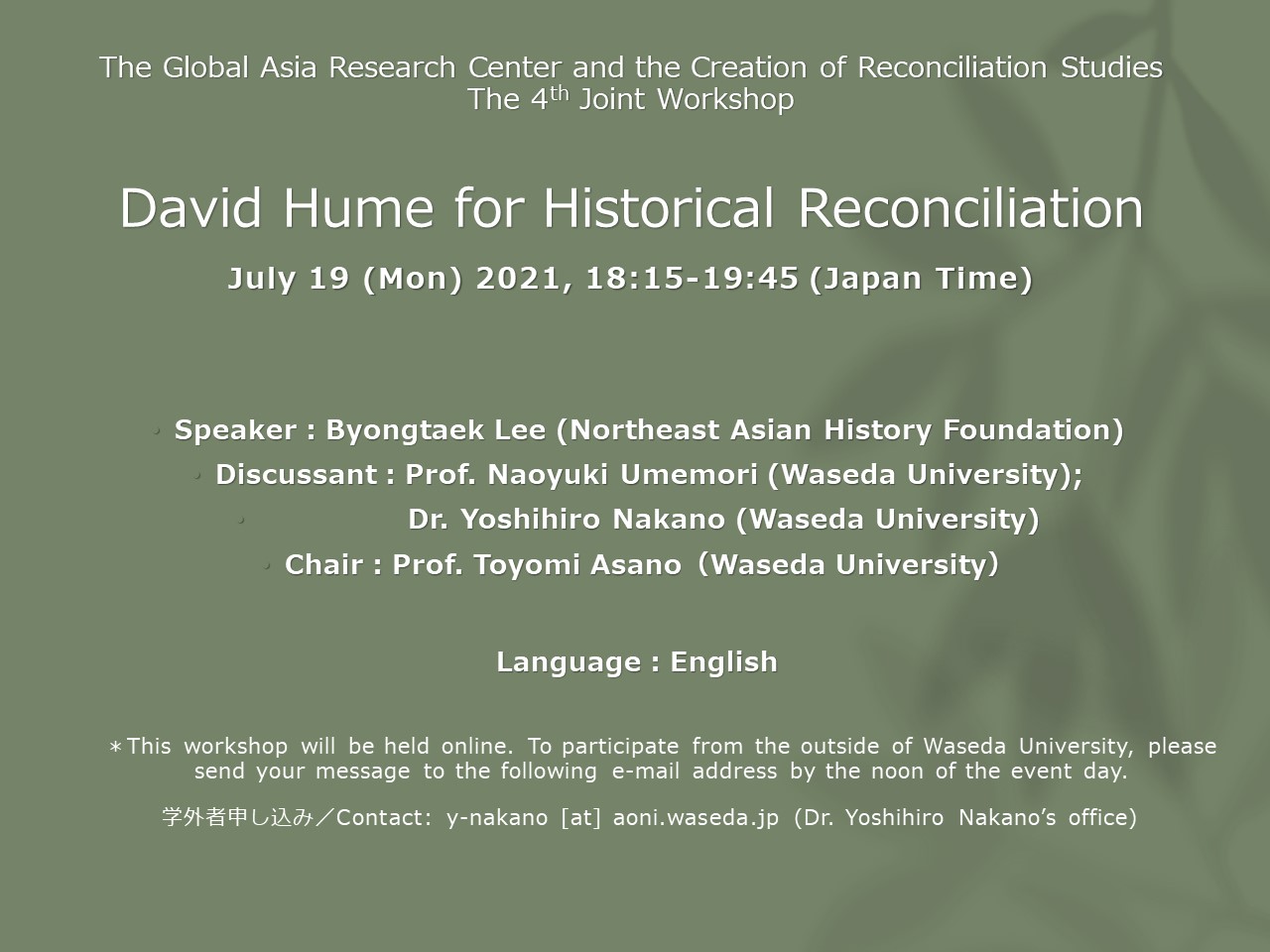The Global Asia Research Center holds the 4th Joint Workshop with the Creation of Reconciliation Studies. Dr. Byongtaek Lee (Northeast Asian History Foundation) talks about David Hume’s philosophy and its relevance to historical reconciliation.
Speaker:Byongtaek Lee (Northeast Asian History Foundation)
Discussant:Prof. Naoyuki Umemori (Waseda University); Dr. Yoshihiro Nakano (Waseda University)
Chair:Prof. Toyomi Asano(Waseda University)
Date & Time: July 19 (Mon) 2021, 18:15-19:45 (Japan Time)
Language:English
Eligible Participants: Undergraduate and Postgraduate Students, Faculty Members, and the Public
*This workshop will be held online. To participate from the outside of Waseda University, please send your message to the following e-mail address by the noon of the event day.
学外者申し込み/Contact: y-nakano [at] aoni.waseda.jp (Dr. Yoshihiro Nakano’s office)
Abstract:
There are two ways in which we can use Hume’s philosophy and history for the study of historical reconciliation. First of all, we can pay attention to the subject matters that Hume deals with in his History of England. For instance, he pays full attention to the party strife in his days and traces back to its origin. Second, Hume’s philosophical methodology has much to do with how to achieve political and social reconciliation. His philosophical investigation of human nature has a distinctive feature from the other ones, which is to pave a way to moderate passions and reconcile with one another for the benefit of society. Hume’s way is not to build a speculative system, as evidenced in Rousseau and Hegel. Rather, his methodology is a historical or experiential constitution: Remember that the rational constitution of the world has proved a total failure in his Treatise. Hume’s historical constitution also criticizes the voluntaristic tendency of social contract theory, which does not reveal the real and deep problems of political society. In addition, politics of will from “general will” in the French Revolution to “self-assertion” in Hitler’s totalitarianism does not resolve durable political problems.
This presentation will give an example of Hume’s historical constitution, that is, how to balance between authority and freedom, which is one of the most important narratives in his History of England. The confrontation of authority and freedom begins in the Stewart dynasty, the first king of which, James I, was introduced from Scotland into England. To resolve the confrontation, the commons beheaded Charles I and abolished kingship. But the commons’s coup d’eta did not achieve what they had intended to do. The country party’s (later the Whig party’s) narrative of freedom could not stand without the court party’s (later Tory party’s) narrative of authority. Nevertheless, one doctrine could not easily reconcile itself with the other. The Glorious Revolution finally reconciled authority with freedom in a satisfactory manner, with emphasis on popular principles. How did the English achieve this political modernization, decent and free commonwealth, which has proved durable and effective?

